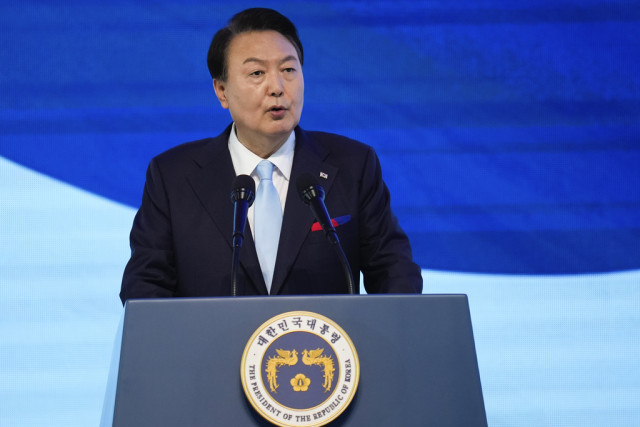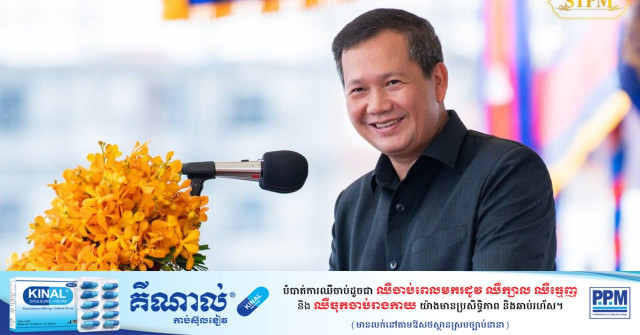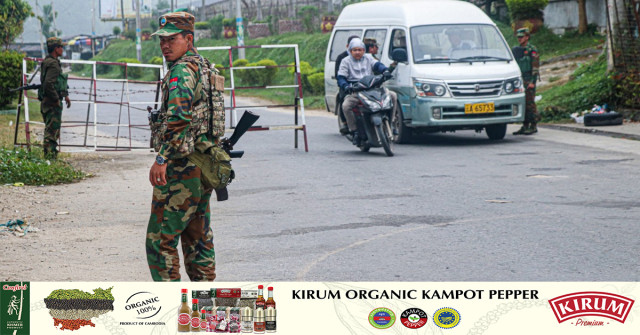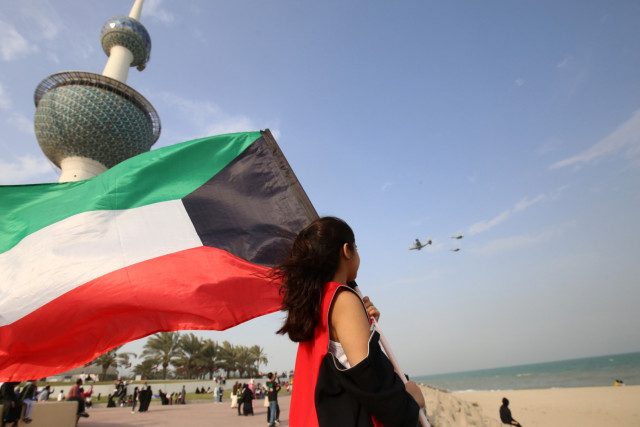South Korea's Yoon Calls for Strong Security Cooperation with US, Japan ahead of Camp David Summit

- By Associated Press (AP)
- August 15, 2023 4:05 PM
SEOUL, South Korea — South Korea’s president called for deeper security cooperation with the U.S. and Japan to address North Korean nuclear threats, saying Tuesday that his upcoming summit with the U.S. and Japanese leaders at Camp David will “set a new milestone in trilateral cooperation.”
It will be the first time for the leaders of the three countries to gather entirely for a trilateral summit, rather than on the sidelines of international meetings. This suggests they are serious about boosting their ties in the face of North Korea’s advancing nuclear arsenal and China’s increasingly assertive foreign policy.
In their summit Friday at the U.S. presidential retreat in Maryland, President Joe Biden, South Korean President Yoon Suk Yeol and Japanese Prime Minister Fumio Kishida are expected to announce plans for expanded military cooperation on ballistic missile defenses and technology development, according to two senior Biden administration officials.
“The ROK (Republic of Korea)-U.S.-Japan summit to be held at Camp David in three days will set a new milestone in trilateral cooperation contributing to peace and prosperity on the Korean Peninsula and in the Indo-Pacific region,” Yoon said in a televised speech in Seoul on Tuesday.
Yoon’s speech marked the 78th anniversary of Korea’s liberation from Japan’s 35-year colonial rule in 1945. Past South Korean presidents commonly used Liberation Day speeches to ask Japan to make fresh apologies over its colonial wrongdoing. But Yoon, a conservative who has pushed to resolve the historical grievance as a way to boost Seoul-Washington-Tokyo cooperation, didn’t do so and rather explained again why improved ties with Japan were needed.
Yoon said the seven rear bases provided to the U.S.-led U.N. Command by Japan serve as “the greatest deterrent” that keeps North Korea from invading South Korea. He said a North Korean invasion would trigger an immediate, automatic intervention by the U.N. Command and that the bases in Japan have the necessary land, sea and air capabilities.
“As partners that cooperate on security and the economy, Korea and Japan will be able to jointly contribute to peace and prosperity across the globe while collaborating and exchanging in a future-oriented manner,” Yoon said.
Yoon said the significance of Seoul-Washington-Tokyo security cooperation is growing on the Korean Peninsula and in the region.
“In order to fundamentally block North Korea’s nuclear and missile threats, the Republic of Korea, the United States and Japan must closely cooperate on reconnaissance assets and share North Korea’s nuclear weapons and missiles data in real time,” Yoon said.
When they met at the margins of a regional conference in Cambodia in November, Yoon, Biden and Kishida said they intended to share North Korea missile warning data in real time to improve each country’s ability to detect and assess the threat posed by incoming missiles. In June, their defense ministers said they recognized efforts to activate such a data-sharing mechanism before the end of the year.
Worries about North Korea's nuclear program has grown since the North openly threatened to use nuclear weapons in conflicts with its rivals and conducted about 100 missile tests since the start of last year. Many of the missiles tested were nuclear-capable weapons that place both South Korea and Japan within striking distance and could potentially reach the U.S. mainland. South Korea and Japan together host about 80,000 U.S. troops.
In response to North Korea's torrid run of missile tests, the United States and South Korea have expanded their military drills and resuming some trilateral training involving Japan. That has infuriated North Korea, which views U.S.-led military exercises on and near the Korean Peninsula as an invasion rehearsal. North Korean officials say U.S. moves to bolster military cooperation with South Korea and Japan are pushing the North to reinforce its own military capability.
During his recent tour of munitions factories, North Korean leader Kim Jong Un ordered officials to drastically increase production of missiles and build “an overwhelming military force” to “surely annihilate” its enemies, state media reported Monday.
South Korea, the U.S. and Japan have held a trilateral leaders’ meeting a total of 12 times since they had their first such a summit in 1994, but all of them were held on the sidelines of international conferences, according to South Korea’s presidential office.
This week’s first stand-alone trilateral summit at Camp David comes as ties between Seoul and Tokyo have eased significantly in recent months. In March, Yoon took a major step toward resolving bilateral wrangling over colonial-era Korean forced laborers, despite vehement opposition at home by some victims and his liberal rivals. Yoon has argued Seoul and Tokyo share challenges like the intensifying U.S.-China strategic rivalry and global supply chain problems as well as the North Korean nuclear program.















